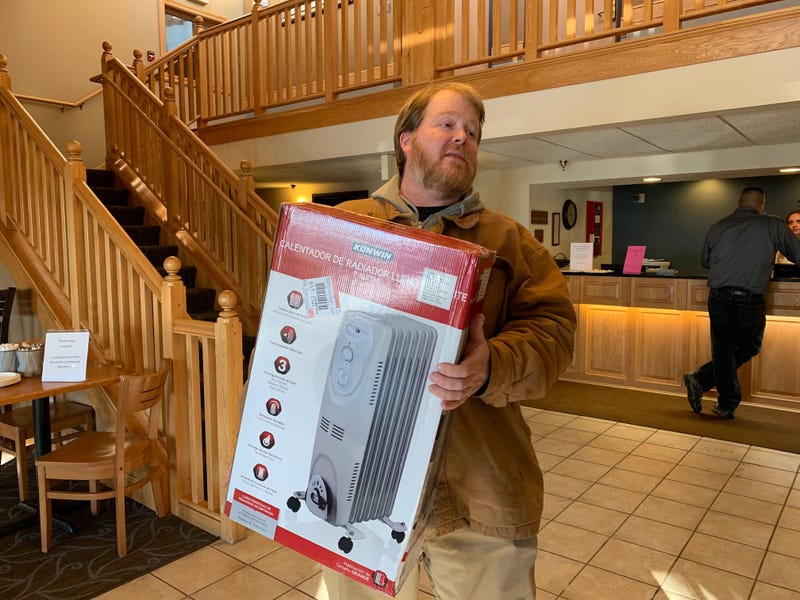
The extreme cold is putting a strain on Xcel Energy’s gas distribution system in the North Metro. On Tuesday night, the company decided to shut off the gas at some 150 homes in the Baldwin Township area west of Princeton, MN.
“We just had more demand than the system could support,” said Mark Osendorf the Community Relations Manager for Xcel Energy. “We engaged Sherburne County Emergency Management they have done welfare checks on every door.”
Scott Gillespie woke up to no heat in his Princeton home. He also got a knock on his door from a firefighter.
“They’re doing what they can, it’s a bad situation,” said Gillespie. “It’s extremely cold, but I’m happy with what they’re doing. They’re trying to make it right and trying to make sure everyone is safe.”
Xcel Energy is giving space heaters to those 150 customers affected by the shutoff to keep pipes from freezing in their homes. They’re also offering rooms for folks looking to stay the night if their homes are unbearable. Jonathan Audet took one of the rooms and his 4-year-old son took advantage of the pool at the AmericInn in Princeton.
“It’s kind of miserable. We’ve been trying to keep things from freezing up,” said Audet sitting poolside. “We put space heaters around the house to keep things from freezing, but it’s a little too cold for livability.”
Once the system stabilizes Xcel Energy crews plans to turn the gas back on at those 150 homes. For now, they’re asking all Xcel Energy gas customers in Minnesota to drop their thermostats to 63 degrees to give the system some relief.
“Much like the electric grid being interconnected the gas grid in many respects is too,” said Osendorf. “We need a break from mother nature. We need temperatures to warm up for the system to stabilize.”
Turning the gas on to those homes is also going to be a big task. Unlike an electric outage, crews need to go to each home to turn on the gas meter and they need access to the premises.
“We have to get inside, we have to relight pilots. We need to make sure there wasn’t a burner or something left on. If that’s the case, the house would fill with gas and you’d have another problem that we don’t want,” said Osendorf.
